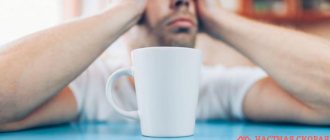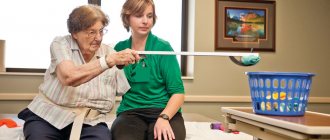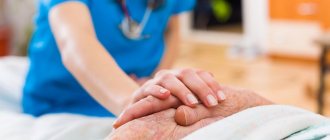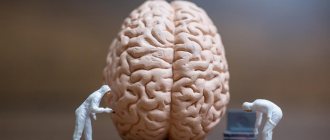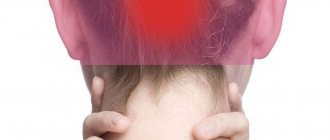Data
· There is a misconception that alcohol helps you sleep better and stay asleep. This statement is erroneous, since such phenomena are short-term and entail the opposite effect.
· To determine a treatment regimen for insomnia, it is necessary to exclude possible diseases that provoke sleep disturbances, and if they are identified, then they should be treated first.
· Short-term periods of insomnia that occur as a result of a single drink of alcohol often go away on their own. But if the lack of adequate sleep is a consequence of alcoholism , then the first step to recovery will be to stop drinking alcohol.
· In severe alcohol dependence, detoxification and treatment of withdrawal symptoms are the first stage of therapy.
· Subsequent treatment for insomnia includes complete abstinence from alcohol , taking sleeping pills, behavioral changes and good sleep hygiene. The complex of these measures has the best and longest lasting effect.
· It is important to treat withdrawal symptoms promptly to prevent subsequent depression or brain damage following sleep disturbances.
What to do after a long binge (recovery methods, steps)
You can break out of binge drinking on your own, at home. However, medical experience suggests that this is possible in cases where the duration of the binge does not exceed 5-7 days. If an alcoholic drinks continuously for more than a week, he should go to a clinic, where he will receive urgent assistance and be placed on a detoxification drip.
But how to recover from binge drinking? There are several methods here, each of them determines some factors on which the patient’s post-binge recovery depends. Doctors must take into account the following points:
- the age of the alcoholic;
- alcoholic experience;
- quantity and quality of alcohol consumed;
- general health;
- the presence of chronic diseases and pathologies.
A detoxification drip is the first step towards quitting binge drinking, and therefore recovery after it. A medicinal infusion removes toxins and alcohol breakdown products from the blood, normalizes the functioning of internal organs, and stabilizes the mental state.
An IV can be placed at home, but this must be done by a doctor - he selects its composition based on the patient’s medical history, taking into account the physiological characteristics of the person. However, if the procedure is carried out in a hospital, it will be much safer and more effective.
Drugs for drips are selected individually - this is the only way to neutralize the negative consequences of prolonged and uncontrolled alcohol consumption.
To recover from binge drinking at home, you will need to take a course of sorbents and other active drugs. Properly organized nutrition and drinking plenty of fluids will help.
Quitting alcohol
First of all, the patient needs to stop having a hangover in an attempt to feel better. Contrary to myths , it is impossible to recover from prolonged drinking with a new dose of alcohol.
- When ethyl alcohol enters the digestive system, a large load is placed on the liver. It tries to neutralize and remove a dangerous substance and toxic products of its breakdown from the blood. But severe intoxication disrupts its functioning, so a person suffers from poisoning, which affects all organs and even the brain.
- During abstinence, when some of the alcohol has already been eliminated from the body, the craving for alcohol increases again. If a person drinks a new portion during this period, he again hits the liver.
No drink that contains ethyl alcohol can be used to treat a binge, not even cold beer, which, thanks to marketing, is mistakenly considered the best way to cope with a hangover.
Only a sharp cessation of alcoholic beverages gives a chance for a quick recovery without the risk of complications.
How long does it take for the body to recover after drinking?
Here we can say that each case is individual. Some people will feel better within a week after they start quitting binge drinking, but on average it will take at least a month to recover.
Recovery time depends on the following factors:
- age and gender;
- duration of the binge;
- quality and quantity of alcohol consumed;
- alcoholic experience;
- physical and mental state.
If all the doctors’ recommendations were followed, if the patient was serious about recovery, if therapy was selected that corresponded to the severity of the alcoholic’s condition, then one month will be enough to completely restore the body from the consequences of long-term drinking.
Click here to view the conditions, tariffs and prices for treatment
What happens when you drink alcohol occasionally?
The concentration of ethanol in the blood is not constant throughout the rest period (on average, 7-8 hours). After a noisy feast, a short-lived euphoria occurs, followed by a feeling of fatigue and lethargy. The duration of the stage of falling asleep is significantly reduced, and the first half of night sleep is mainly represented by the deep phase. After a few hours, the concentration of ethanol gradually decreases, its metabolites accumulate, which also cannot but affect the physiology of rest. Deep sleep in the first half of the night gives way to rapid and restless sleep. As a result, a person gets out of bed “broken” and tired; after waking up, he constantly tries to cheer himself up with coffee and energy drinks, which also makes it difficult to fall asleep in the evening. But it takes several days to restore a full sleep pattern. In 10-15% of cases, another portion of alcohol is taken as a sleeping pill. At first, the use of ethanol-containing drinks is episodic, but there is a high probability of developing a stable addiction, especially against the background of a psychological or genetic predisposition.
Restoring sleep after binge drinking
At first, when the body is still able to process the alcohol poured into it, sleep is not disturbed; on the contrary, what you drink will help you fall asleep quickly. However, this effect will not last long - the longer a person drinks, the worse his sleep becomes. This occurs due to the alternation of slow and fast sleep phases. Chronic heavy drinking aggravates the situation - the brain is constantly affected by ethanol, resulting in problems with sleep, and as a result - increasing aggressiveness and hallucinations. Constant lack of sleep is the cause of many dangerous pathologies.
After the end of the binge, alcoholic insomnia can still torment the patient, meanwhile, healthy sleep is a significant part of restoring the body.
Insomnia occurs due to many factors. Its characteristics depend on the duration of the binge and the quality of the alcohol. Therefore, insomnia can be different:
- A person is afraid to fall asleep because he is afraid of nightmares. The body suffers both from the lack of necessary rest and from the type of nightmares imagined.
- Intermittent sleep is also considered insomnia. At the time of frequent awakenings, the patient experiences stress, a desire to drink, and a state of irritability threatens a new breakdown.
- Taking a long time to fall asleep is another type of insomnia. Nervous exhaustion does not allow the body to fall asleep quickly, and as a result, the body wears out even more.
Detoxification measures will help the patient, but if insomnia still continues to torment the person, then you can use the available means:
- Activated carbon will quickly remove remaining toxins from the body (1 tablet per 10 kg of weight for 2-3 days).
- Frequent drinking. Plain water with honey, herbal or rosehip infusions, and green tea are ideal.
- Light sedative drugs: motherwort tincture, glycine, soothing herbal decoctions, Novopassit.
To restore sleep, you can take a warm bath with aromatic oils (if the patient’s blood pressure is normal). It would be good to provide normal sleeping conditions (a flow of fresh air); before going to bed, you can take a walk down the street or in the park.
If, even after the measures taken, sleep has not been restored, you need to seek help from doctors.
Sedatives to help you sleep with a hangover
It is generally accepted that insomnia during a hangover is a coincidence or a consequence of a person’s poor health. However, doctors say that people cannot fall asleep after drinking for several reasons : alcohol stimulates the production of dopamine, increases heart rate, causes anxiety and restlessness, and prevents the relaxation of a person’s muscles. And sharp headaches and other unpleasant symptoms certainly do not contribute to a restful sleep.
To solve the problem, experts recommend taking a closer look at the following types of sedatives , which are sold in pharmacies and do not require a prescription:
- Motherwort (often used as a tincture, relieves irritability and nervousness).
- Valerian (natural sleeping pill, non-addictive).
- Special mixtures (rosemary, hops, St. John's wort, lemon balm and other herbs).
- Glycine (an amino acid that facilitates falling asleep and normalizes sleep).
- Mexidol (prescribed after severe intoxication, as well as in case of damage to the nervous system and psychological stress, it is enough to drink 2 tablets 3 times a day).
- Novo-passit (a combination of natural ingredients helps get rid of insomnia in the shortest possible time, you are allowed to drink 1 tablet throughout the hangover day, but before that it is important to detoxify the body).
Each person’s body is individual, so for some, for example, Glycine will be effective, and for others, Mexidol. If you have already tried these remedies, then choose the one that has the best effect; however, combining several sedatives is not recommended.
It is necessary to observe the dosage and adhere to the rules for using medications so as not to encounter side effects of the medications. In addition, doctors advise carrying out general detoxification , which will solve the problem at the root.
Restoration of the brain and nervous system
Binge drinking seriously disrupts the normal functioning of the central nervous system. Alcohol acts in such a way that a person becomes overly anxious, unreasonably irritable, and in more severe cases, inappropriate behavior, aggression, and hallucinations are observed. The situation is aggravated by alcoholic insomnia and depression.
The functioning of the brain and nervous system can be restored if you switch your attention. Sometimes even watching a light movie or reading a book can give good results. Leisurely walks before bed, a warm bath, and communication with family and friends will help stabilize your psycho-emotional state, especially if a person feels their sincere support.
Nevertheless, it also happens that you cannot do without medication. In such cases, consultation with a doctor is strictly necessary; no medications should be taken without his prescription. Usually, a narcologist initially recommends mild sedatives.
As soon as a person’s psycho-emotional state is completely stabilized, the stage of recovery from binge drinking can be considered complete.
Helpful information
Find out:
- What is the harmful effect of alcohol on the liver and pancreas and what irreversible consequences does it lead to?
- What to do if your blood pressure due to alcohol abuse and why self-medication can be dangerous for a person’s life.
- What does a breakdown after coding from alcohol and what is the right thing to do in such a situation so that it causes as little harm as possible.
- What are the consequences of maternal alcoholism during pregnancy, and how will it affect the further development and health of the unborn child.
- Why coding using the Dovzhenko has practically no contraindications and how effective it is in eliminating alcohol addiction.
Restoring the cardiovascular system after binge drinking
After withdrawal from binge drinking, a person’s condition worsens due to tachycardia and high blood pressure. To correct the situation, the doctor prescribes antihypertensive drugs - most often Anaprilin or Corinfar. It is necessary to strictly follow the instructions for taking medications so as not to aggravate the patient’s condition.
If possible, include honey, apples, dried apricots, viburnum drinks, and citrus fruits in your diet. They contain potassium, this mineral is vital for the normal functioning of the heart and blood vessels.
There is no need to continue recovery from binge drinking at home if the patient’s condition does not improve. Be sure to ask doctors for help; you may need hospitalization.
Content:
- Consequences of systematic drunkenness.
- Insomnia in alcoholism: 2.1. Consequences of sleep disturbances after heavy drinking.
- What to do if you have insomnia after binge drinking: 3.1. Prevention of insomnia after heavy drinking.
One of the first manifestations of the negative effects of ethanol on the central nervous system is sleep disturbances, which are fraught with extremely serious complications. One of the most severe consequences of insomnia after heavy drinking is acute psychosis, which requires emergency medical care in a hospital setting. The situation is complicated by the fact that the use of many medications is limited due to chronic pathologies of the liver and kidneys, which often develop against the background of systematic drunkenness. In addition, alcohol intoxication increases the risk of overdose with tranquilizers, sleeping pills and sedatives.
Restoration of gastrointestinal tract activity
The consequence of binge drinking is the formation of inflammatory processes on the mucous membranes of the gastrointestinal tract. This can provoke the development of ulcers, gastritis, and other diseases.
Eating small meals will help you recover from binge drinking. Kissels and oat decoctions included in the diet will prevent the spread of inflammatory processes.
Lack of protein is another negative consequence of long-term drinking bouts. Protein deficiency will be eliminated:
- low-fat chicken broth;
- milk and especially fermented milk products;
- a large amount of liquid to restore metabolic processes.
Of course, you need to give up salty, spicy foods, eliminate fatty foods, smoked foods, and sweet sodas with dyes.
Novopassit
Novopassit is a sedative drug based on components of plant origin: valerian, lemon balm, St. John's wort, hawthorn, passionflower incarnate, hops, elderberry.
The product is commercially available in the form of tablets and solution. It is prescribed for mild forms of insomnia caused by nervous tension and overexcitation.
The drug is contraindicated for:
- Individual intolerance;
- Myasthenia gravis (muscle weakness);
- Up to 12 years of age.
In acute forms of gastrointestinal and liver disorders, brain diseases, epilepsy and alcoholism, Novopassit is prescribed with caution.
The cost of Novopassit is from 196 rubles.
Liver recovery after binge drinking
The liver takes the brunt of the damage and suffers the most from the consequences of heavy drinking.
There are general recommendations that will help restore normal liver function:
- You need to consult a doctor, especially if you have a diagnosis of chronic alcoholism. He will prescribe the medications necessary in each specific case.
- Large amount of liquid. Dehydration after heavy drinking damages the liver, and water speeds up its recovery process.
- You need to eat only fresh and healthy foods. Fast food, smoked meats, fatty and spicy foods require too much effort from the liver to process, these foods should be excluded.
- You can drink herbal decoctions based on dandelion and burdock - they stimulate bile secretion.
- Don’t forget about proper rest, harmonious communication with loved ones, leisurely walks before bed.
Bad advice: how not to be treated
In magazines and forums you can find publications with tips that you can use to quickly restore your well-being and stop binge drinking on your own. But among them there are many harmful recommendations on how to carry out treatment at home: they can lead to complications and progression of addiction.
- Baths, saunas, and baths are good for relaxing and strengthening the body of healthy people. But during binge drinking, the load on the cardiovascular system increases significantly, so the alcoholic experiences hypertensive crises and pulse rhythm disturbances. High temperature, coupled with contrasting douches, can become a catalyst for an acute attack and even death.
- Traditional methods have no proven effectiveness and are usually prescribed as an adjuvant. They are not able to eliminate cravings for alcohol, and are also not more effective or safer than drugs.
- Homeopathy – drugs without proven effectiveness and active ingredients. There are many drugs from this group in the pharmacy that promise to quickly relieve withdrawal symptoms, but they are all expensive dummies.
Binge drinking is a serious condition, and not everyone is able to cope with it without calling a narcologist to their home. To protect yourself from any complications, it is better to entrust the process to a specialist: at the Detox clinic in Krasnodar you are guaranteed to receive high-quality medical care that will allow you to quickly and without consequences return to a sober life.
Kidney recovery after binge drinking
The kidneys suffer the most from the negative effects of binge alcoholism, because they remove alcohol breakdown products from the body.
The renal system pumps fluids containing organic and mineral elements through itself. Thanks to the filtration system of the kidneys, substances that are harmful and unnecessary for the body are eliminated from the body naturally. The remaining substances involved in the reabsorption process are returned to the blood.
One of the most dangerous products of ethanol breakdown is acetaldehyde, which reduces reabsorption within the kidneys. As a result, useful substances are removed from the body and their deficiency occurs. Due to the lack of necessary elements in the body, the recovery of the body will be more difficult and longer.
There are also generally accepted recommendations for restoring kidneys after binge drinking:
- Taking hepatonephroprotectors. Glutargin is usually prescribed.
- To improve glomerular filtration, you can take the anti-hangover drug DrinkOFF.
- Moderate physical activity and weak coffee also help in kidney recovery.
Sports and coffee should be avoided during long-term drinking bouts.
Consequences of insomnia for the body
Insomnia from a hangover not only causes chronic fatigue, but can also trigger suicide attempts. This is due to the fact that in conditions of prolonged absence of normal rest, a person begins to be haunted by anxious thoughts and a feeling of hopelessness. Taken together, this can lead to suicidal feelings.
The Brain Research Institute has found that pathological changes in the brain are associated with sleep disorders. Experiments have shown that insomnia and changes in rest patterns lead to deterioration in cognitive and emotional function, decreased coordination, attention and memory.
Such changes deprive a person of the opportunity to lead a full life and cause nervousness and irritability. For this reason, it is important to start treatment at the very beginning and avoid permanent pathological changes in the body.
Recommended food after binge drinking
Properly organized nutrition is perhaps the main guarantee of successful recovery of the body after quitting binge drinking. In the first days, the alcoholic’s body is not yet able to absorb anything, so there is no need to forcefully offer food. Cabbage brine will help restore the water-salt balance, partially relieve swelling and eliminate dehydration. Drinking plenty of fluids is encouraged.
On day 2-3, the patient can begin to be given weak chicken broth, fresh vegetables and fruits, and fermented milk products. Obviously, you cannot overload the body with excessively heavy food, so smoked foods, soda, salty and spicy foods are excluded.
It is important to eat fractional meals in small portions. Be sure to try to provide a balanced meal including protein, fat and carbohydrates.
Walking in the fresh air and good sleep will contribute to a quick recovery.
Reduced craving for alcohol
The main catalyst for binge drinking is an uncontrollable craving for alcoholic beverages, which suppresses willpower and the voice of reason. There is no drug in narcology that can instantly relieve withdrawal symptoms in alcoholics, so doctors use symptomatic prescriptions, individually selecting drugs for the patient.
But using them for self-medication is dangerous and impossible: they are all strictly controlled and are sold only by prescription. Therefore, during the period of quitting alcohol, you can use other methods to reduce cravings.
- A habit is the result of neural connections built in the head. A person’s thoughts are not spontaneous: the brain tries to organize them, creating specific “routes” that guide behavior and mood. When giving up alcohol, it is important to destroy harmful neural connections, in which, according to American researchers, regular physical exercise provides significant assistance. Once you start doing simple exercises, you will notice that the desire to gain access to the bottle gradually disappears.
- The brain can be distracted in another way - by doing something creative. Having chosen any interesting activity, you need to completely immerse yourself in it, ignoring the manifestations of withdrawal symptoms.
- In drug rehabilitation, auto-training is often used, which allows you to maintain high motivation for recovery and gain strength to resist cravings for alcohol.
When choosing an approach, it is important to take into account the personality characteristics of a person, his age, social status, and habits. It is important to remember: addiction can and must be fought. That it is victory over your weaknesses that becomes the starting point for a new life: successful, bright, conscious.
Physiotherapeutic recovery methods
Physiotherapeutic procedures are carried out after a detoxification course and have the same goals - cleanse the body of toxins. In addition, a course of physiotherapy speeds up the recovery of the body that has suffered from the consequences of prolonged drinking.
In drug treatment practice, the following procedures are considered the most effective:
- Plasmapheresis.
- Xenon therapy.
- Ozone therapy.
- UFO (ultraviolet irradiation) of blood.
- ILBI (intravenous laser blood purification).
- Massage.
Referrals for physiotherapeutic procedures can only be issued by the attending physician.
Auxiliary drugs and remedies after binge drinking
The consequences of binge drinking are such that the body becomes severely dehydrated and is almost completely poisoned by toxins and ethanol breakdown products. To quickly restore physical and mental condition, doctors prescribe additional medications and vitamin complexes that will support the body and replenish the deficiency of nutrients and minerals.
Taking vitamins should begin after the narcologist’s decision on their prescription. Only a specialist will determine the dosage and regimen of auxiliary medications.
Vitamins for alcohol detoxification
Taking vitamins should speed up the removal of ethanol breakdown products from the body. The most commonly used are vitamin C and B vitamins (thiamine, pyridoxine).
Vitamins for quitting alcohol
If an alcoholic decides to give up alcohol on his own or after medical coding, very careful monitoring of his health will be required. The fact is that withdrawal syndrome can make a person nervous and irritable. It is extremely important to establish a balanced diet, follow a routine, engage in feasible physical activity, and spend more time in the fresh air.
For such patients, the doctor prescribes B vitamins and drugs containing magnesium - they will help stabilize the emotional background.
During periods of withdrawal, the narcologist may prescribe the following auxiliary drugs:
- Riboflavin (B2) to normalize the gastrointestinal tract and hormonal levels.
- Calcium pangamate (B15) for vascular restoration. Do not take if you have high blood pressure.
- Rutin (Vitamin P). Strengthens blood vessels, prevents thrombus formation. Works well in combination with vitamin C.
To restore the deficiency of potassium and magnesium in the body, Magne B6, Magnelis, and Cardiomagnyl are prescribed. Taking medications should only be started after consultation with a narcologist.
Vitamins for restoring the body after binge drinking
In such cases, the doctor prescribes a vitamin complex containing the daily norm of essential substances. You must first do a blood test: if the deficiency is too severe, then there will not be enough vitamins and a course of injections or infusions will be required. We list the most common auxiliary drugs that will help the body recover at home or in the hospital:
- Vitamin A (carotene). To normalize metabolic processes and vision. Take strictly as prescribed so as not to overload the liver.
- Vitamin E. Antioxidant, promotes cellular regeneration. Prescribed after poisoning. Alcohol poisoning is also among them.
- Vitamin C. Antioxidant. Prescribed to improve blood flow and general condition of blood vessels, and improve immunity.
- Vitamin P (rutin). Strengthens blood vessels, works in combination with ascorbic acid
- Vitamin D3. Prescribed for better absorption of calcium and strengthening bone tissue, normalizes the emotional background. You will need to spend 20 hours in the sun to get the required amount of this vitamin. D3 is good to take not only for alcoholics.
- B vitamins. They solve many problems aimed at restoring and strengthening the body. Improves the functioning of the heart, blood vessels, brain, liver.
- Vitamin K. Strengthens the capillary vascular system.
Vitamins after long-term alcohol intake
The longer a person drinks alcohol, the more his liver suffers. Therefore, the doctor prescribes an expanded list of auxiliary medications and vitamins, including:
- Thiamine. Improves metabolic processes.
- Nicotinamide or vitamin B3. Regenerates liver tissue. To avoid fatty hepatosis, it is taken in combination with methionine.
- Cyanocobalamin (B12).
Note that vitamins themselves cannot replace medications; they are an effective addition to existing treatment. In addition, many vitamins and medications cannot be taken in combination; the use of auxiliary medications and medications must be coordinated with a doctor.
Bibliography:
- Evremov I.S., Asadullin A.R., Nasyrova R.F. Alcohol and sleep disorders. — Review of Psychiatry and Medical Psychology, 2020. — No. 3.
- Poluektov M.G., Pchelina P.V., Palman A.D. Sleep disorders in alcoholism. - Journal of Neurology and Psychiatry. S.S. Korsakova, 2015. - 115 (4).
- Azimova Yu.E., Ishchenko K.A. Sleep disturbances in alcoholic illness: diagnosis and therapy. - Neurology, 2021. - No. 4.
- Shabanov P.D. Narcology. Guide for doctors. — 2nd ed. reworked and additional - M.: GEOTAR-Media, 2012. - 832 p.
How to recover with medication
Quitting drinking does not mean that your health will be restored to its previous level. A whole range of measures will be required for the body to return to normal and begin to function normally.
Many organs and systems will need massive support, and this will require not only time, but also serious professional help. Without medications, it is almost impossible to activate the work of the heart, blood vessels, central nervous system, liver, kidneys, and gastrointestinal tract.
And although in each individual case the prescription of drugs will be individualized, there is a certain basis that may look like this:
- Solutions for restoring the acid-base and water balance of the body.
- Hepatoprotectors for the regeneration of liver cells and tissues.
- Vitamins of various groups and areas of influence to break down ethanol breakdown products and maintain body functions at the proper level.
- Mineral preparations of potassium, magnesium, calcium to improve metabolism, cell regeneration, and activate organ function.
- Nootropics to restore stable functioning of the brain and nervous system.
- Sedatives to relieve irritability and tremor.
- Diuretics to accelerate the removal of toxins from the blood and normalize blood pressure.
In addition, if certain symptoms of illness are present, analgesics, enterosorbents, antitussives and other medications are prescribed.
To consolidate the results of treatment, the doctor may give a referral for a course of physical therapy.
Please note that any decisions on prescribing medications are made only after examination and exclusion of contraindications.
If an alcoholic is intoxicated, taking medications is strictly contraindicated - most drugs in combination with alcohol can cause irreparable harm to health.
Detoxification
You can improve your health by removing all harmful substances from the blood. In the clinic, special drugs and even blood-filtering devices are used for this, but at home, instead of an IV, you can use:
- oral sorbents;
- mild diuretics.
Adsorbents are drugs that will remove toxins from the digestive tract and help eliminate dyspeptic symptoms.
However, most of the half-life products of ethyl alcohol are not in the gastrointestinal tract, but in the blood of an alcoholic. The kidneys will help filter them and remove them through urine. To start their work, you need to drink more fluid and use diuretics or decoctions:
- milk thistle;
- thyme;
- birch leaves;
- mint;
- valerian and motherwort.
Stimulation of the kidneys is contraindicated in case of chronic pathologies. Herbs and any other plant components can also harm a weakened body, so this recommendation should be used with extreme caution.
How to recover from binge drinking at home
Of course, turning to a narcologist in such a situation would be the best solution, but there are times when this cannot be done. You can alleviate the condition of the house if the binge was short-lived and you adhere to certain rules:
- Drink plenty of water and simple drinks.
- Monitor blood pressure and take antihypertensive medications as prescribed by your doctor.
- Take vitamin and mineral complexes.
- Adequate sleep of at least 8-9 hours.
- Walks in the fresh air, feasible physical activity.
- 7-10 days after you start to break out of the binge, take a contrast shower.
- Avoid heavy foods, include high-fiber foods in your diet, and organize smaller meals.
- Before going to bed, drink soothing infusions of valerian, motherwort, and mint.
Additionally, you need to have a consultation and prescription from a doctor so that recovery at home is as effective and harmless to health as possible.
Is it possible to drink alcohol for good sleep?
How to fall asleep with a hangover quickly and peacefully? Some people solve this problem with alcohol. However, it is worthwhile to understand how effective and safe this option is.
A person decides to drink a “glass” before bed or after a hangover to combat insomnia. This becomes a habit, and soon the time will come when he can no go to bed without drinking alcohol to sleep. This is a direct path to alcohol addiction , which will overtake a person sooner or later.
You should refuse this kind of treatment, because perhaps you will fall asleep peacefully 1-2 times, then you will get used to it, and the hangover in the morning will become stronger and stronger. In the end, you simply won’t be able to fall asleep without a “glass.”
How to recover with the help of a narcologist
Contacting a good drug treatment clinic is a guarantee that recovery from binge drinking will take place with a good end result. Comprehensive treatment will eliminate complications, constant medical monitoring will ensure rapid stabilization of mental and physical health.
The classic body recovery plan includes the following steps:
- Detoxification drip. Quickly cleanses the blood of toxins and neutralizes the dangerous effects of long-term drinking.
- Symptomatic therapy. Alcohol harms all organs and systems. After a clinical and hardware examination in the clinic, the patient is prescribed medication appropriate to his condition.
- Psychotherapy. The brain and nervous system suffer from binge drinking no less than the internal organs. The psyche of an alcoholic is seriously tested. A rehabilitation course with a narcologist includes improving general indicators of psycho-emotional background and convincing people of the need to completely abstain from alcohol. The program includes attending individual and group classes, hypnosis sessions, medication, creative activities, lectures and seminars.
In order for treatment and recovery after a drunken state to be as effective as possible, in order to prevent the risks of subsequent breakdowns, professional help is needed. Our clinic has all the resources for this: specialists, hardware examination, clinical laboratory, medications. Providing psychological support is a significant part of all stages of the recovery process. Our psychologists and psychotherapists will provide professional advice and prescribe treatment taking into account the individual qualities of the patient.
If recovery from binge drinking at home does not lead to the desired result, do not hesitate: contact a professional.
How doses of alcohol affect sleep
Different doses of alcohol taken while drinking and the frequency of drinking cause different reactions when trying to sleep:
Alcohol in small quantities
Increases continuation of sleep. When falling asleep, you may experience calmness or excitement, depending on how much time separates the drinking from falling asleep. The duration of continuous sleep can fluctuate in opposite directions.
High doses of alcohol
Total sleep time is significantly reduced. A restless sleep ensues, which is interrupted at the beginning of the second half of the night. A person who has drunk a lot, when falling asleep, passes the drowsy stage, falling into delta sleep, from which it is very difficult to recover.
Continuity is disrupted: the stage of slow-wave sleep increases significantly, REM sleep is absent. During the fast stage, people see dreams; in very drunk people, delusions, hallucinations, and delirium tremens appear.
Risk group
Insomnia after alcohol is more common and more difficult to treat in older people. Studies show that the blood alcohol content of older people is significantly higher than that of young people with the same dose of alcohol consumed.
Vicious circle
Alcohol dependent people with insomnia often drink alcohol to help them fall asleep. At the same time, a significant part of them realize that alcohol significantly disrupts healthy rest. Alcoholic drinks help you sleep until sleep disorders develop.
Drinking alcohol does not allow you to get rid of these disorders, which leads to an increase in the dose of alcohol. In this case, insomnia provokes the further development of alcoholism, which often leads to depression.
